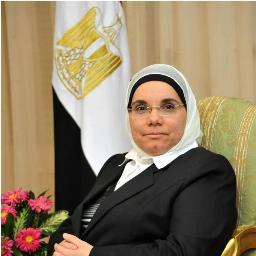
(AFP FILE PHOTO / MOHAMMED MAHJOUB)
Since the official start of the registration process on 12 January, the Ministry of Solidarity issued permits for 43 Egyptian NGOs to observe the upcoming parliamentary elections, according to Ayman Abdel Gawad, general manager of NGOs at the ministry.
“The number is the most recent we had until this morning at the operation room we established, which will continue receiving applications until the deadline on Tuesday,” Abdel Gawad told Daily News Egypt Monday.
In the meantime, Maat Foundation for Peace, Development and Human Rights will cooperate with the Global Network for Rights and Development (GNRD) and the International Institute for Peace, Justice and Human Rights (IIPJHR), in addition to coordinating with 31 local NGOs across Egypt.
Maat Foundation requested permits for 400 international observers and 7,000 local observers, but its director of programmes Walaa Gad told Daily News Egypt Monday that he expects only 2,370 local observers will be given permits by the Supreme Electoral Commission (SEC).
NGOs that wish to participate in the electoral observation process are required to obtain a certificate of validity issued by the ministry approving the legal status of the organisation.
“The activities of the organisation are in accordance with the permits obtained in the field of observation of political elections, democracy, human rights and political awareness,” according to an official statement released by the ministry Sunday.
Gad said there was a lack of coordination between SEC and the ministry, which affected the ministry’s performance in facilitating authorisations for NGOs.
NGOs are to submit the ministry’s certificate to the SEC. Additionally, Abdel Gawad explained that there was an alternative to facilitate the process of obtaining necessary authorisations.
“Among the 43 NGOS approved so far, 26 of them directly applied to the SEC by obtaining a certificate from the administration affiliated with the ministry in their local communities,” Abdel Gawad said.
Accepted NGOs are expected to receive their permits between 4 February and 14 March.
Parliamentary elections are scheduled to take place starting 21 March, as the last day of second round elections, if needed, will be 7 May. SEC has not yet announced the opening of registration for candidates.
In comparison to the presidential elections that took place last May, international observation in the parliamentary elections remains uncertain. On 14 January, the EU parliament issued a resolution statement on Egypt saying that “it would not be opportune to send an Election Observation Mission to parliamentary elections, as this could seriously undermine the credibility of the election observation instrument”.
The EU’s resolution explained this by arguing that presidential elections in Egypt took place in a context “where room for freedom of expression had been severely restricted, and all forms of dissent and criticism, including those of human rights organizations”.
Major international organisations such as the European Union and the African Union do not follow the same procedures as local NGOs to monitor elections, and are usually addressed through direct invitation from the SEC and the Foreign Ministry to send delegations to attend and observe the elections, usually closer to the date of elections.
Other observers to the elections could include a committee of ministries’ representatives designated by the Ministry of Social Solidarity, in addition to media institutions who are also in the process of registration at the SEC.


